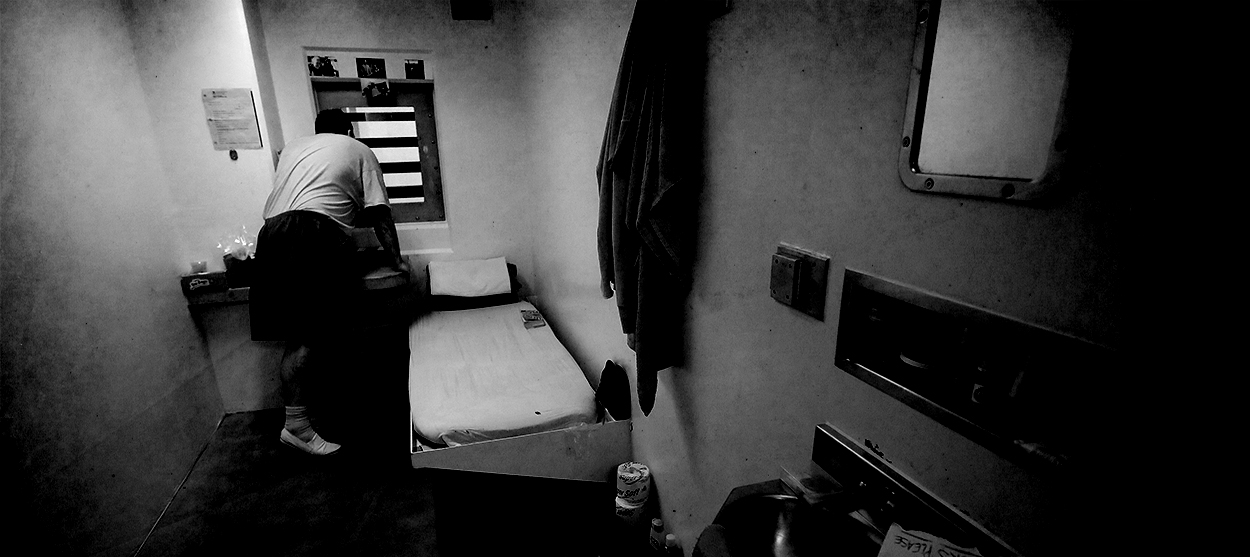The Derek Chauvin solitary confinement predicament


A free daily email with the biggest news stories of the day – and the best features from TheWeek.com
You are now subscribed
Your newsletter sign-up was successful
Former Minneapolis police officer Derek Chauvin is being held in solitary confinement for 23 hours a day following his conviction for the murder of George Floyd. He's held in a small cell with "a bench with a mattress pad, a combination toilet and sink, and a tiny shower." A guard checks on him every 30 minutes.
Chauvin's solitary confinement is protective, and he's hardly languishing in a dank hole. He has writing materials, and potentially reading materials, too. The Count of Monte Cristo this is not. He's also perhaps the most notorious man in the country at this moment — hardly a sympathetic test case for arguing against solitary confinement.
But America should rethink solitary, even for Chauvin. It's not a stretch to call it torture. A brief separation is one thing, but extended isolation from human contact is "cruel and unusual punishment," in constitutional parlance. About 60,000 people are held in solitary in U.S. prisons at any given time (under normal conditions — use of solitary has spiked during the pandemic in an attempt to curb viral spread). Isolation is used not only for protection, as in Chauvin's case, but also for punishment, including for very minor offenses, like "derogatory comments" and "reckless eye-balling."
The Week
Escape your echo chamber. Get the facts behind the news, plus analysis from multiple perspectives.

Sign up for The Week's Free Newsletters
From our morning news briefing to a weekly Good News Newsletter, get the best of The Week delivered directly to your inbox.
From our morning news briefing to a weekly Good News Newsletter, get the best of The Week delivered directly to your inbox.
The worst cases are the long ones. In Texas, The Texas Observer reported last year, 1,300 people have been in solitary for six years or more. Among those, 129 have been in solitary for two to three decades, and 18 for 30 years or more. Texas isn't the only state with ultra-long solitary stays. Before it passed a law limiting solitary confinement to 15 consecutive days, New York kept a teenager, Kalief Browder, in solitary for two out of three years of pre-trial detention. Browder committed suicide after his ordeal.
As for Chauvin, he'll likely be sentenced to around 12 years in prison, or potentially as many as 40. If he is held in solitary longer than 30 days, his situation will be subject to review. But it's difficult to know what alternative prison officials would choose: Chauvin's notoriety (and therefore their quandary) will be no different in 30 days. That solitary may seem like the only option points to our prison system's larger need for reform.
A free daily email with the biggest news stories of the day – and the best features from TheWeek.com
Bonnie Kristian was a deputy editor and acting editor-in-chief of TheWeek.com. She is a columnist at Christianity Today and author of Untrustworthy: The Knowledge Crisis Breaking Our Brains, Polluting Our Politics, and Corrupting Christian Community (forthcoming 2022) and A Flexible Faith: Rethinking What It Means to Follow Jesus Today (2018). Her writing has also appeared at Time Magazine, CNN, USA Today, Newsweek, the Los Angeles Times, and The American Conservative, among other outlets.
